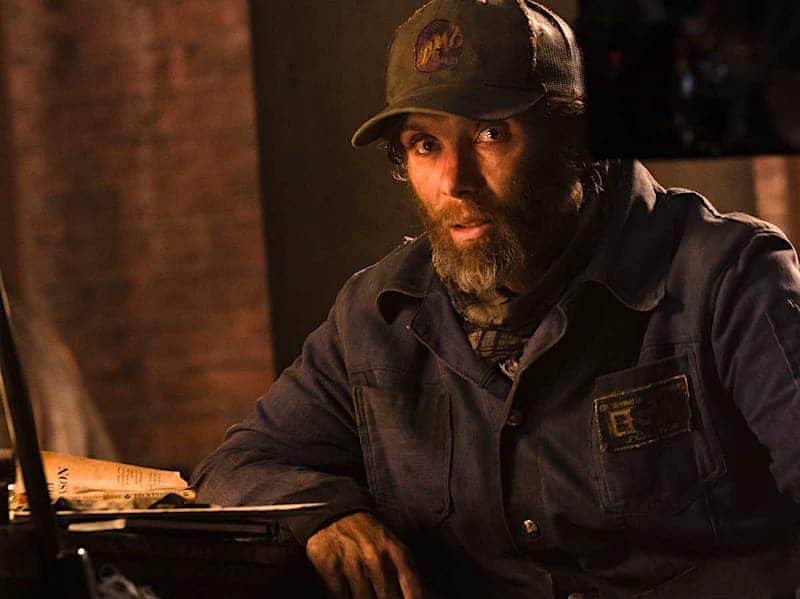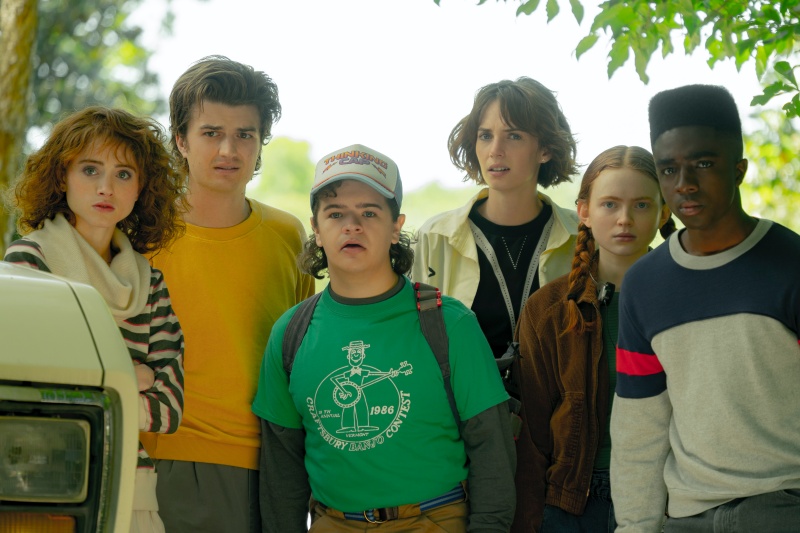#‘Eric LaRue’ Review: Judy Greer Is Superb as the Shattered Mother of a School Shooter in Michael Shannon’s Directing Debut

Table of Contents
An ensemble of gifted actors effectively play against type in Michael Shannon’s quietly powerful directing debut, none more so than Judy Greer, outwardly numbed by sorrow but raw inside as a mother whose son shot and killed three high school classmates. While the subject matter inevitably invites comparison with Mass, that well-received 2021 chamber piece — also a first feature by an actor, Fran Kranz — kept its focus tight on two sets of parents on either side of a similar tragedy. Eric LaRue casts a wider gaze, taking in the broader community and the religious leaders fumbling or manipulating the conversation about healing.
Shannon’s deep roots in Chicago theater are evident in his choice of material and his success at assembling a first-rate cast — uncommonly strong across the board for a modestly scaled indie like this.
Eric LaRue
The Bottom Line
Intense and absorbing.
The script was adapted by Brett Neveu from his play of the same name, which premiered in 2002 at A Red Orchid Theatre, co-founded by Shannon. He reserves a choice supporting role as a fanatical religious leader for Steppenwolf fixture Tracy Letts, author of two plays in which Shannon originated roles, Killer Joe and Bug. The cast also includes the director’s wife and fellow Windy City stage vet, Kate Arrington, as well as his close friend and frequent castmate Paul Sparks and his wife, Annie Parisse.
In another key connection, Jeff Nichols, who directed Shannon in Shotgun Stories, Take Shelter, Mud, Midnight Special, Loving and next up in The Bikeriders, serves as an executive producer.
Greer plays Janice LaRue, first seen sitting in her parked car, her face a mask of anxiety as she summons the will to enter the supermarket in an unidentified small town.
As she wanders the aisles like a zombie, Janice is startled by chipper First Presbyterian pastor Steve Calhan (Sparks), who gently encourages her to come by the church whenever she feels ready to talk. Alluding to the cloud hanging heavily in the air since the murders committed by her son Eric (Nation Sage Henrikson), whom Janice has not yet visited during his months in prison, Steve tells her, “You should try and think beyond what happened. Try thinking about what comes next.”
That in essence is the film’s subject — the struggle to move forward after a paralyzing life incident and the frequently misguided advice of concerned outsiders attempting to offer answers to unanswerable questions and balms for incurable pain.
At home, Janice is urged by her husband, Ron (Alexander Skarsgard), to seek spiritual sanctuary at Redeemer, the happy-clappy church he has recently joined, headed by motivational preacher Bill Verne (Letts, wielding subtly overbearing authority). But Ron’s Sunday School-type sermonizing — all “Let Jesus into your heart” and “Jesus will take away your burdens” and laying on of hands — increasingly irritates his wife, who has no use for simplistic solutions.
Ron’s religious fervor is fanned by the friendship of a fellow Redeemer worshipper who’s HR manager at the company where he works, Lisa, played with scary, wild-eyed zealotry and a hint of sexual temptation by a terrific Alison Pill.
Lisa’s inspirational talks in the car when dropping Ron at home after group prayer meetings or in inappropriate exchanges at the office in some ways make her an even more dubious source of help than Bill. However, the latter’s reminder to Ron of the Scriptures’ teachings about the prescribed roles of male dominance and female subservience in a household further widens the chasm opening up between Ron and Janice.
The film closely observes Janice as she recalls moments from Eric’s childhood or undertakes the traumatic task of reordering his bedroom, the door to which appears to have remained closed for months as a constant, confronting reminder.
She also experiences the community’s uneasiness around her when Jack (Lawrence Grimm, another Red Orchid co-founder), her department manager at the local hardware store where she works — well-stocked with a range of firearms — insists she take extended leave. “If you gaze too long into the abyss, the abyss gazes into you,” he tells her, in what sounds less like a warning than a fait accompli.
But the primary dramatic momentum is built around the conflicting attempts by pastors Steve and Bill to orchestrate a sit-down between the LaRues and the mothers of the murdered youths. Ron makes clumsy attempts to lay down the law, ordering Janice to get on board with the plan at Redeemer, where one of the mothers, Laura Gates (Jennifer Engstrom), speaks in tongues and spends services in an ecstatic trance.
Janice ignores her husband’s wishes and goes ahead with Steve’s meetings. These are attended by grieving mothers Jill (Arrington), whose coping mechanism seems to be a kind of absence; and Stephanie (Parisse), who barely conceals the rage bubbling insider her, especially when Janice expresses her own anger or frustration. Steve’s well-intentioned but awkward amateur psychology only inflames these situations.
One of the questions Shannon’s film asks with both skepticism and honest contemplation is whether turning to God in such circumstances is useful or just compounds the isolation and helplessness.
Ultimately, the cathartic step for Janice lies not in finding forgiveness or any kind of peace via the victims’ mothers but in summoning the resolve to visit Eric in prison. In that tense, expertly played encounter, he expresses remorse but rejects his mother’s attempts at comfort and understanding, closing the film on a note of haunting ambiguity.
There’s no escaping the fact that Eric Larue is a downer, but it’s a work of thoughtful intelligence and restraint, elegantly shot and graced by a striking score from Jonathan Mastro full of dissonant strings that often evoke a sense of nerves about to shatter.
Most of all, it’s beautifully acted. It’s particularly interesting watching Skarsgard dial back his natural magnetism to play an unsophisticated milquetoast with a bad haircut and a style-free dad uniform, his weakness steering him to easy solutions. And Sparks is equally compelling as a man of the cloth who deep down seems to know his folksy brand of mediation has little effect. It’s also lovely to see New York stage treasure Marylouise Burke pop up in a tiny role.
But Greer’s is the performance that keeps you riveted — at times flinty, elsewhere emotionally wrung-out or hollow or exhausted beyond description, a bleeding wound for which there likely is no Band-Aid.
If you liked the article, do not forget to share it with your friends. Follow us on Google News too, click on the star and choose us from your favorites.
For forums sites go to Forum.BuradaBiliyorum.Com
If you want to read more Like this articles, you can visit our Social Media category.




